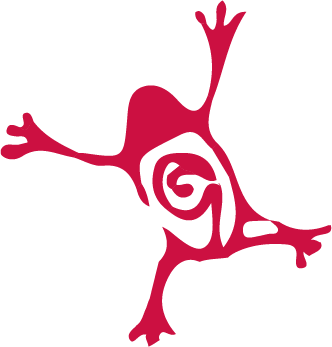Support for K-12 & Post-Secondary
Education
The Education Department of Tl'azt'en Nation is committed to helping members to achieve their educational goals and desires through the delivery of quality educational programs and services; maximize academic success; and strives to make a positive difference in the lives of our students. We support lifelong learning through education, encouragement and motivation. We encourage our community to dream of the work you're doing, make your dreams come true from the heart. The Strategic Plan for the Education Department is: Leading Education through Advocacy and Recognition of New possibilities The Education Department is responsible for providing educational services to all community members of Tl'azt'en Nation. These services are intended to address the educational needs of our kindergarten to grade twelve programs, post-secondary students, and adults that will have a positive impact on the quality of education provided.
K-12 Support
The Education Department provides a variety of services to assist our students from kindergarten to grade 12. These services include:
- Student honour roll incentive
- Student fees
- School supply support
- Tutoring support
- Extra-Curricular Activity support
- Access to a Community Liaison Worker
- Access to Language & Culture programs
- Student support and peer counselling
- Graduation incentive
- Graduation plaques
Adult Education
Adult Education Services include:
- Course completion bonuses
- Meals program
- Attendance incentives
- Access to Language & Culture programs
- Graduation incentives
- Graduation plaques
Additional Support
The Education Department offers a variety of programs to assist our members:
- Sum Yaz Daycare
- Headstart Supported Childcare
- Eugene Joseph Elementary School
- Adult Learning Centre
- Employment & Training
- Post-Secondary Language & Culture Skills Link
- Mentorship Summer
- Work Experience
- After School Recreation
Our Success Story
Asante Project
Tl’azt’en Nation applied to Jordan’s Principle to receive funding for student assessments at the Kindergarten to grade 7 level.
We partnered with The Asante Centre, Governed by the Fetal Alcohol Spectrum Disorder Society for British Columbia. The Asante Centre is a non-profit organization committed to the support and full potential of people with complex needs. The primary focuses included:
a) Community and family readiness;
b) Assessment and diagnosis, and;
c) Service planning and connection.
Community and Family Readiness Activities assessed through family support workers, who were local staff hired by Tl’azt’en Nation and trained by the Asante Centre. Readiness was supported through community dialogue sessions and individual family connections. Sessions were held with the broad community, as well as parents specifically with the project, and children/youth. All sessions were done in collaboration with Tl’azt’en staff, Asante clinicians, and Asante staff (including two individuals with complex needs).
Assessment and Diagnostic Activities aimed to assess up to 60 children and youth; actually completed 61 assessments. Assessment generally included medical, psychology, speech-language, occupational therapy, and meetings with family and supports. Assessments seek to gain a comprehensive profile of the child/youth including needs, abilities, and areas for support. They are more comprehensive than school-based assessments. Results of assessments were shared via face-to-face meeting with the family and supports, as well as provided to families as a written report.
Of the 61 completions, assessment types included:
- 42 complex children and youth (multidisciplinary);
- 8 fetal alcohol spectrum disorder (FASD) (multidisciplinary);
- 7 psychology and speech-language only, and;
- 4 psychology only.
Project Strengths
- The levels of support that families received throughout the process by both clinicians and community support workers.
- Accessibility of the services in that they were offered in community.
- The fact that transportation was provided (appointments were mainly held in local schools).
- The communication and outreach efforts of the Asante Centre.
- Culturally sensitive approach facilitated by the flexible and adaptable staff and clinicians
Project Team
Asante Centre
Allsion Pooley-Wong, Asante Centre Executive Director
Asante Centre team
Tl’azt’en Nation
Renata Monk, Executive Director
Georgina Alexis, Education Manager
Manu Mahdok, Consultant
Michelle Pierre, Community Support Worker
Chasity Aslin, Community Support Worke
Assistant Kimberly Johnnie
Community Support Assistant Indigenous Services Canada Allison Olney
High Cost and Special Education Programs Lead
Goals & Measures
The project “Assessment, Diagnosis, and Support for Children and Youth of Tl’azt’en” supported the design and implementation of a community-based approach focusing on multidisciplinary assessments and follow-up recommendations for children and youth

Post-Secondary Application
